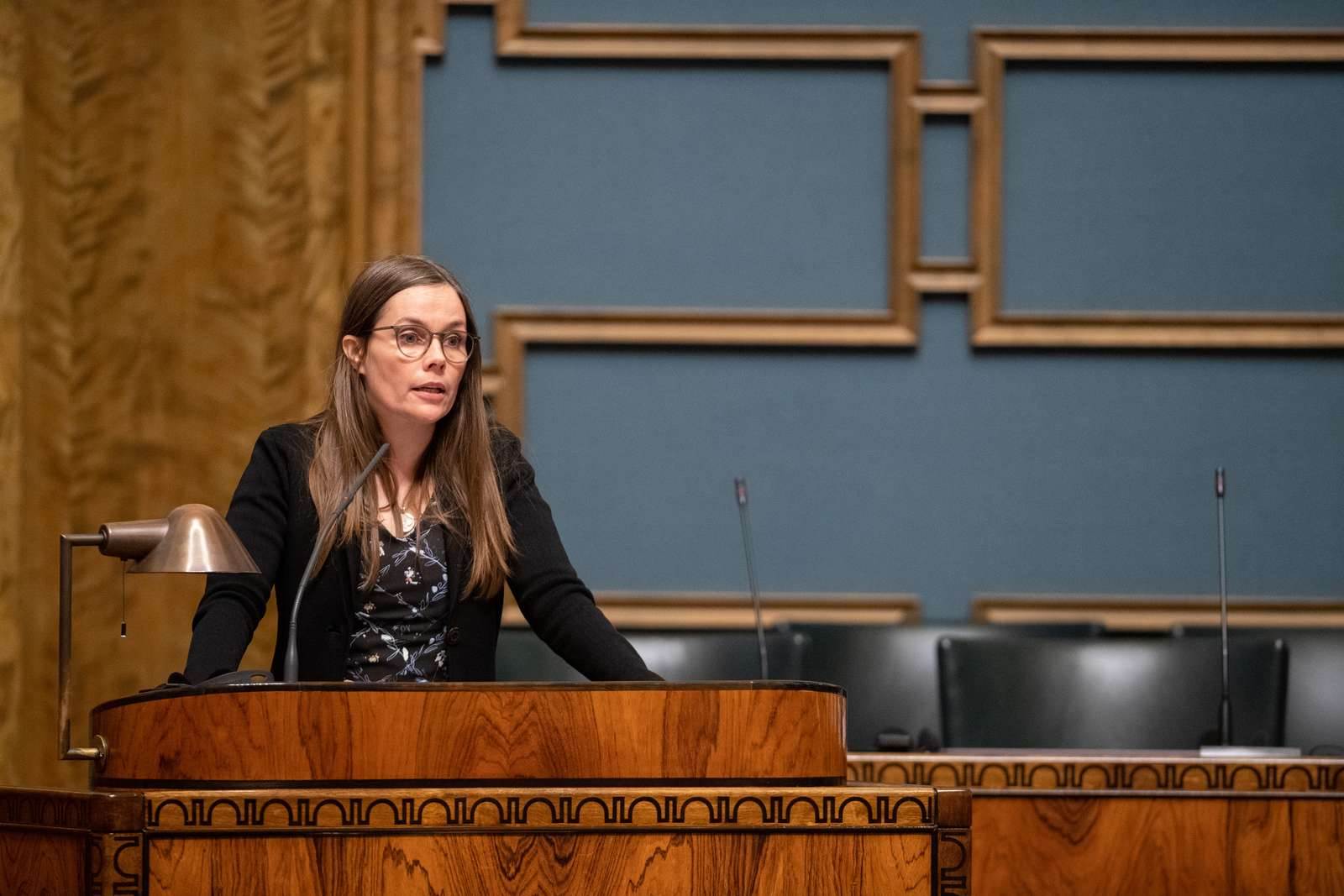Iceland’s Presidency in the Nordic Council of Ministers 2023
Prime Minister Katrín Jakobsdóttir has presented the programme for the Icelandic Presidency of the Nordic Council of Ministers for 2023. The Prime Minister presented the one-year Presidency programme to the Session of the Nordic Council that took place in Helsinki this week. Iceland will take over the Presidency from Norway on 1 January 2023.
The headline of Iceland’s Presidency will be: “The Nordic Region – A Force for Peace”. Iceland's Presidency will focus on the three priority areas of a green, competitive and socially sustainable Nordic Region, including efforts to support a green and just transition, with the participation of every generation.
The Icelandic Presidency will highlight the importance of peace as the prerequisite for welfare, human rights, and environmental protection. This emphasis is largely determined by Russia’s invasion of Ukraine, which has completely altered the security situation in the West. Such circumstances make the solidarity and co-operation of the Nordic nations vitally important.
“The Nordic nations are at their strongest when they join forces. Not only does Nordic co-operation deliver results - it also brings us enjoyment and builds bridges between inhabitants of the region, in areas such as gender equality, the environment and universal welfare in our societies,” stated Prime Minister Katrín Jakobsdóttir and Guðmundur Ingi Guðbrandsson, Minister for Nordic Co-operation, in their joint address.
Iceland’s programme for the Presidency is founded upon on the Nordic Council of Ministers Vision 2030, which has the overarching objective for the Nordic Region to become the world’s most sustainable and integrated region. The action plan describes how the Nordic Council of Ministers will work to achieve the objectives of the vision through the vision’s three strategic priorities: a green Nordic Region, a competitive Nordic Region, and a socially sustainable Nordic Region. The co-operation within the Nordic Council of Ministers is intended to serve this purpose.
The focus areas include a just transition, a green transition in the fisheries sector and in the utilisation of maritime resources, an inclusive labour market, the strengthening and development of cultural activities and the arts by promoting innovation and increasing relations between artists, developing a common Nordic policy on digital language technology, and the equality and rights of LGBTQI+ people with an emphasis on issues concerning transgender and intersex people. Co-operation between the West Nordic countries will also be a focus point during the Presidency.
“There is widespread support for Nordic co-operation in the Nordic Region and for generations of people, this is how it has always been. We may have a tendency for taking this collaboration for granted, for Nordic co-operation requires time and effort and should not be taken as a given. It is the result of discussion, work, and joint decisions which, taken together, make us stronger as one region. The future vision for Nordic co-operation up until 2030 of becoming the most sustainable and most integrated region in the world, is an example of such a joint decision, which will create numerous opportunities in the coming years,” Prime Minister Katrín Jakobsdóttir and Guðmundur Ingi Guðbrandsson, Minister for Nordic Co-operation, also stated in their joint address.
The Presidency is a far-reaching and highly important project that concerns every ministry within the Government of Iceland through Iceland’s participation in the Nordic Council of Ministers’ ministerial committees and committees of senior officials.
Iceland last held the Presidency of the Nordic Council of Ministers in 2019, which is when the 2030 Vision was adopted. Iceland’s Presidency comes a year earlier than it would have under normal circumstances, since it changed places with Sweden, which will hold the Presidency of the Council of the European Union during the first half of 2023.
On the Nordic Council of Ministers and Iceland’s Presidency
The Nordic Council of Ministers is the official forum of the Nordic governments. The Council works on joint solutions to issues where the Nordic countries can achieve the best outcomes by working together. Iceland will hold the Presidency of the Council in 2023 and will lead the co-operation under the headline „The Nordic Region - A Force for Peace“.
The activities of the Nordic Council of Ministers are carried out within 12 committees where ministers from the responsible ministries work together on issues concerning their policy fields. This work is also carried out within committees of senior officials.

